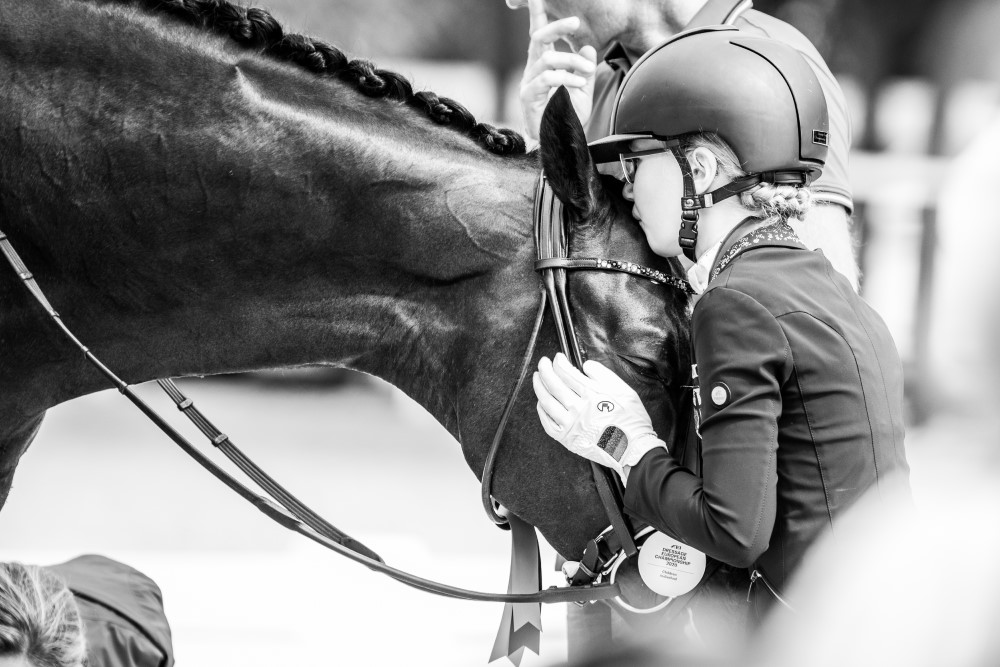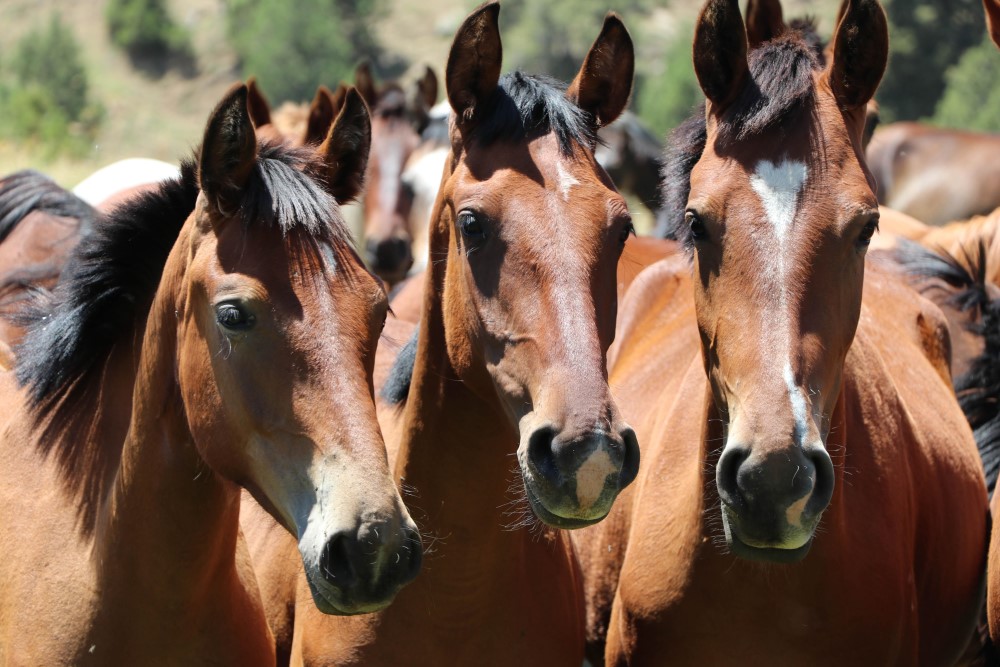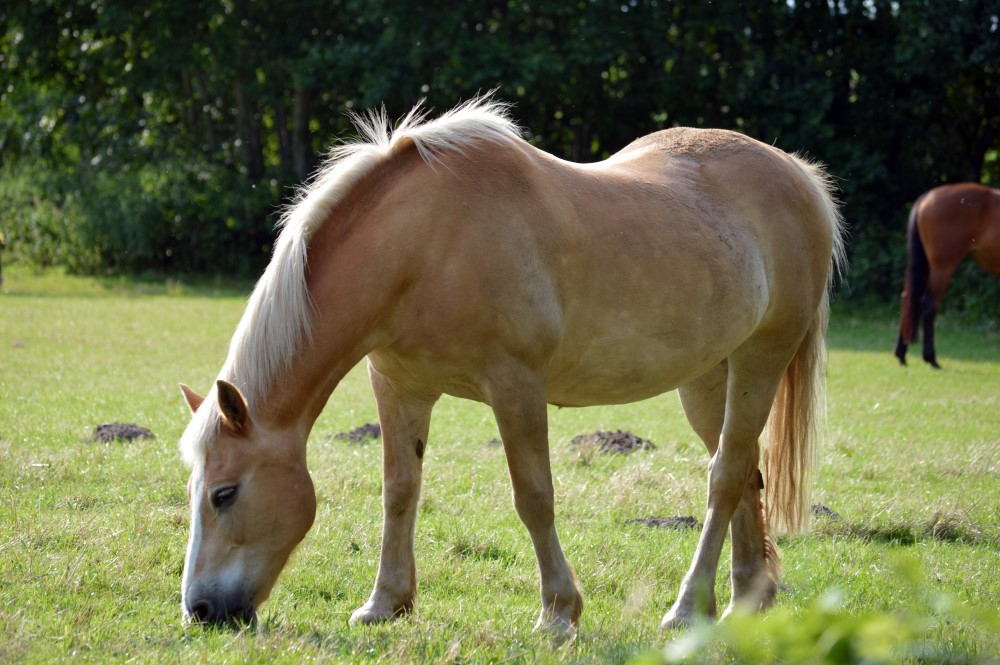Welfare of animals has moved from an expectation that they are well-nourished, cared for and free of unnecessary suffering, to where the priority is that they have a life worth living.
In order to have a social licence to operate, horse owners need to address public concerns about horses. In this, the third in my series of articles on equine welfare, I would like to explore a few questions: What’s a good life for horses? Whose job is it to ensure horses experience positive welfare? How and who ensures that we have the social licence to operate?

I like what Ghandi said: “You must be the change you wish to see in the world”. Another quote I like is, “If it’s to be, it’s up to me”. On one hand, each of us who owns or interacts with horses must be responsible for our horses’ welfare and we should try to be up-to-date with current knowledge and views about positive welfare. The FEI Equine Ethics and Welfare Commission has developed a charter, which is a pledge we each can make that we try to provide a good life for our horses.
On the other hand, sports are overseen by organisations such as the FEI, Equestrian Australia and affiliated state branches, various racing authorities and so on. All of these bodies are responding to the need for a social licence to operate in different ways.
Let’s look first at what is a good life for horses and what we can do as the humans responsible for our horses. Leading global equine welfare charity World Horse Welfare, and eminent equine behaviouralist Professor Natalie Waran, propose that access to the 3Fs – Friends, Forage & Freedom – will improve horse welfare, giving them a good life and better mental health. Let’s take a closer look…
FRIENDS

“It is good for youngsters
to have an older leader…”
Horses are social animals and like to have friends. Social housing may include herds or small groups in the paddock, but it may also be horses stabled in group housing with more than one horse, or open-top stables where they can see and touch each other. If you want to give your horse friends, the recommendation from leading global equine charity World Horse Welfare is to do it gradually. Let them get to know each other by stabling adjacently so they can get to know each other first to see if they get on.
Another recommendation is to travel them together first and they are more likely to chum up. My stallion Pzazz has a pet Shetland for company, as I feel confident that the Shetland won’t hurt him. Sometimes I put a weanling in with my good horses with the same principle in mind that there are less likely to be fights… and injuries. It is good for youngsters to have an older leader. This is best done with no shoes on initially if possible, and in a big enough paddock to allow movement without that awful crash through a fence.
FORAGE
Wild horses graze 16 hours or so a day, trickle feeding, providing activity and exercise while they seek out the generally low nutrition plants. We generally give them a highly concentrated feeding regime which may lead to problems including acidosis, ulcers, and repetitive behaviour such as stable vices, and obesity. We can provide enrichment such as mirrors, and toys such as feeding balls and reduce stable vices. Slow feeders can also help by providing different feeding stations with different feed options.

FREEDOM
Freedom can include freedom to make choices, not being imprisoned, free expression, no rules and obligations. Obviously, freedom for domesticated horses is a relative concept. We should look for ways to give them freedom. Natalie Waran gives the example of being free to roll safely by having enough space, that is, about 17-20 square metres are needed – larger than the average stable – and stable bedding should be ramped at the edges to prevent casting. Bigger stables and longer turnouts will reduce “rebound activity” (running around after being locked up) which, as we know, presents a risk of injury to horse and rider.
There are some studies that have looked at choices horses will make. For example, in Norway horses were trained to show if they wanted rugs on or off. They will indicate most often to not have them, unless weather conditions were extreme… although older horses were more likely to choose rugs. We should provide environments where horses can express a wider range of behaviour. Some of these changes we can implement in our own paddocks and stables.
ORGANISATIONAL RESPONSIBILITY
Now, let’s look at what “they”, the organisations, can do. The FEI is the international body that governs equestrian sport. Equestrian Australia is an affiliate of the FEI and is guided by them. In 2004, the FEI started to promote the idea of the horse as a happy athlete. This generally meant the absence of conflict behaviours such as teeth grinding and tail swishing. However, in 2022 the FEI set up a commission of five independent experts and five appointees from within the FEI to be critical friends and advise the FEI about equine welfare and social licence. The objective was to ensure that sport horses have a positive experience throughout their lives, and guide FEI policy, regulations, and practice to ensure that we continue to have a social licence to operate.
Public and equestrian community opinion was sought by survey, expert opinion and research. About 28,000 equestrians and 14,000 members of the public responded. A majority of 65% of the public had concerns about the involvement of horses in sport with variance between countries. And 78% of equestrians felt that welfare standards needed improving, and this statistic was highest among vets and recreational riders.
The FEI commission – the Equine Ethics and Wellbeing Commission – outlines that a Social Licence to Operate (SLO) requires trust of the people and all agencies involved; SLO can’t be self-awarded. SLO will come from the sport’s attention to positive welfare goals, with the FEI guiding and leading policy, practice and advocacy and information. The FEI must be a leader, be trusted, be transparent, be proactive, and be accountable in the way it approaches these activities.
Six Enablers (the 6Es) were identified – Evidence, Education, Engagement, Enforcement, Effective Regulation and Empowerment – and within each one, six areas of priority focus were listed. They are:
● Training, riding, tack and equipment
● Recognising physical and emotional stress
● Accountability, enforcement, knowledge
● The other 23 hours of a horse’s life
● Competitive drive, horses and number
● Not fit to compete, masking health problems
Several specific recommendations were made by the interim report last year, some of which have been enacted. Regarding tack, the three recommendations were double bridles and spurs should not be mandatory and that nosebands mustn’t be too tight. Regarding regulation, it was recommended there be a rule for all disciplines that elimination is possible on the field of play on welfare concerns in any discipline at any time. Regarding advocacy, it was recommended an education focus group should review education in the FEI campus and establish a research fund.

The final report was delivered in 2023 and the FEI’s response with specific recommendations was due to be tabled at the FEI’s 12th Sports Forum in Lausanne, Switzerland, as I write. I hope to report on the outcomes next month.
All equestrian organisations will look forward to what guidelines might be laid down. Equestrian Victoria, for instance, says that all state branches endeavour to ensure the welfare of both our human and equine athletes. “While as an organisation we cannot remove the personal responsibility from the owners and riders, we can ensure that our rules and governance provide a structure for our sport that supports the welfare of our equine athletes. A majority of these principles are led from Equestrian Australia’s General regulations, policies and principles that all state branches adhere to,” Equestrian Victoria said in a statement that included an extensive list of current principles and practices that it is committed to.
Interestingly and pertinent to the current discussion, it is currently head-hunting in this exact field. “In terms of Equestrian Victoria’s commitment specifically, we are in process of recruiting for a health and safety officer with the core focus of ensuring that human and equine standards are being communicated and providing guidance for our clubs, affiliate, and members on these requirements.” A positive initiative, indeed.
“I think we should be cautious about
the practice of ‘welfare washing’…”
‘WELFARE WASHING’
We have become familiar with the term “green washing”, referring to the dissemination of misleading information to present an environmentally responsible public image. I think we should be cautious about the practice of “welfare washing”, where an organisation might talk the talk but doesn’t walk the walk. For example, if you are a regular reader of my articles, you are aware that positive reinforcement training, where an animal is awarded for the behaviour that’s being trained, is the approach with the highest welfare value. Frequently a clicker is used to mark the behaviour that the trainer wishes to see. This method is called clicker training.
Curiously, the FEI Steward General for Dressage has determined that a clicker is a gadget with the same status as draw reins or an electric whip, and so is banned for use at all FEI shows, and therefore at all EA shows. This does seem to be a very grave misunderstanding of the importance of positive reinforcement and the role of high welfare value training.

So, the circle closes. We the horse people must take responsibility for positive welfare of our horses. We must ensure our organisations play their part, especially in advocacy and education. And our organisations must ensure that we do our part. In short, we must all work together, for the love of the horse.
Dr Andrew McLean summarises: “The more we enable the horse to access his basic needs of foraging, exercise, social opportunities and self-carriage in training, the better the welfare and the better training outcomes.” Access to social partners and freedom to make choices has been shown to better learning outcomes. So it’s a no-brainer to me that we should look at our own practices, because we love our horses, we want the best for them, we want to contribute to social licence, and we might even find that they are easier to train.”
If you are interested in looking at this more, I suggest the following references:
www.worldhorsewelfare.org (from Prof Natalie Waran, Webinar the 3Fs)
www.equinewellbeing.fei.org (the website of the FEI Equine Ethics and Welfare Commission and contains all the documents)
www.racingvictoria.com.au (welfare strategy, this document takes a slightly different approach to welfare) EQ
YOU MIGHT ALSO LIKE TO READ BY KERRY MACK:
Earning Our ‘Social Licence’ – Equestrian Life, March 2024
What Does Welfare Really Mean? – Equestrian Life, March 2024
A Masterclass with Vanessa Way – Equestrian Life, January/February 2024
Play it Safe From the Ground Up – Equestrian Life, December 2023
The Joy of Raising Foals – Equestrian Life, November 2023
Perfecting the Short Side – Equestrian Life, October 2023
The Subtle Art of Suppleness – Equestrian Life, September 2023
Perfecting The Pirouettes – Equestrian Life, August 2023
Get In The Zone & Go With The Flow – Equestrian Life, July 2023
How to Resolve Common Problems – Equestrian Life, June 2023
A Smarter Way to Compete – Equestrian Life, May 2023
What Motivates Me – Equestrian Life, March 2023
More Than a Walk in the Park – Equestrian Life, February 2023
Scott Keach Makes His Own Luck – Equestrian Life, December 2022
No Room for Bullying in Our Sport – Equestrian Life, November 2022
Avoid the Mud (Play Indoors) – Equestrian Life, October 2022
Why We Love Our Sport – Equestrian Life, September 2022
Getting on the Bit – Equestrian Life, July 2022
Positive Training Really Clicks with Horses – Equestrian Life, June 2022
Learn From Your Mistakes – Equestrian Life, March 2022 issue
Young Horse Classes: A Fun Launching Pad – Equestrian Life, February 2022
Making Sense of all the Bits & Pieces – Equestrian Life, January 2022
The Secret to ‘Soft Hands‘ – Equestrian Life, December 2021
Ask Less, Reward More – Equestrian Life, October 2021
So You Want To Go To The Games? – Equestrian Life, September 2021
The Ins & Outs Of Bitless Bridles – Equestrian Life, July 2021
Taking The Plunge With The Lunge – Equestrian Life, June 2021
Dressage for Showjumpers – Equestrian Life, May 2021
23 Shoulder-In Exercises to Improve Your Horse – Equestrian Life, April 2021
Understanding Your Horse’s Inner Thoughts – Equestrian Life, March 2021
Make the Most of Your Seniority – Equestrian Life, February 2021
Building Better Relationships – Equestrian Life, January 2021
Whipping Up Controversy – Equestrian Life, December 2020
The Importance of a Trusting Relationship – Equestrian Life, November 2020
Welcome to Kindergarten for Foals – Equestrian Life, October 2020
The Carrot or the Liquorice? Positive Reinforcement – Equestrian Life, September 2020
Submission or Stress? Something to Chew On – Equestrian Life, August 2020
A Relaxed Horse is a Happy Horse – Equestrian Life, July 2020
The Literate Horse Rider – Equestrian Life, June 2020
Why Horses Love Ingrid Klimke – Equestrian Life, May 2020

